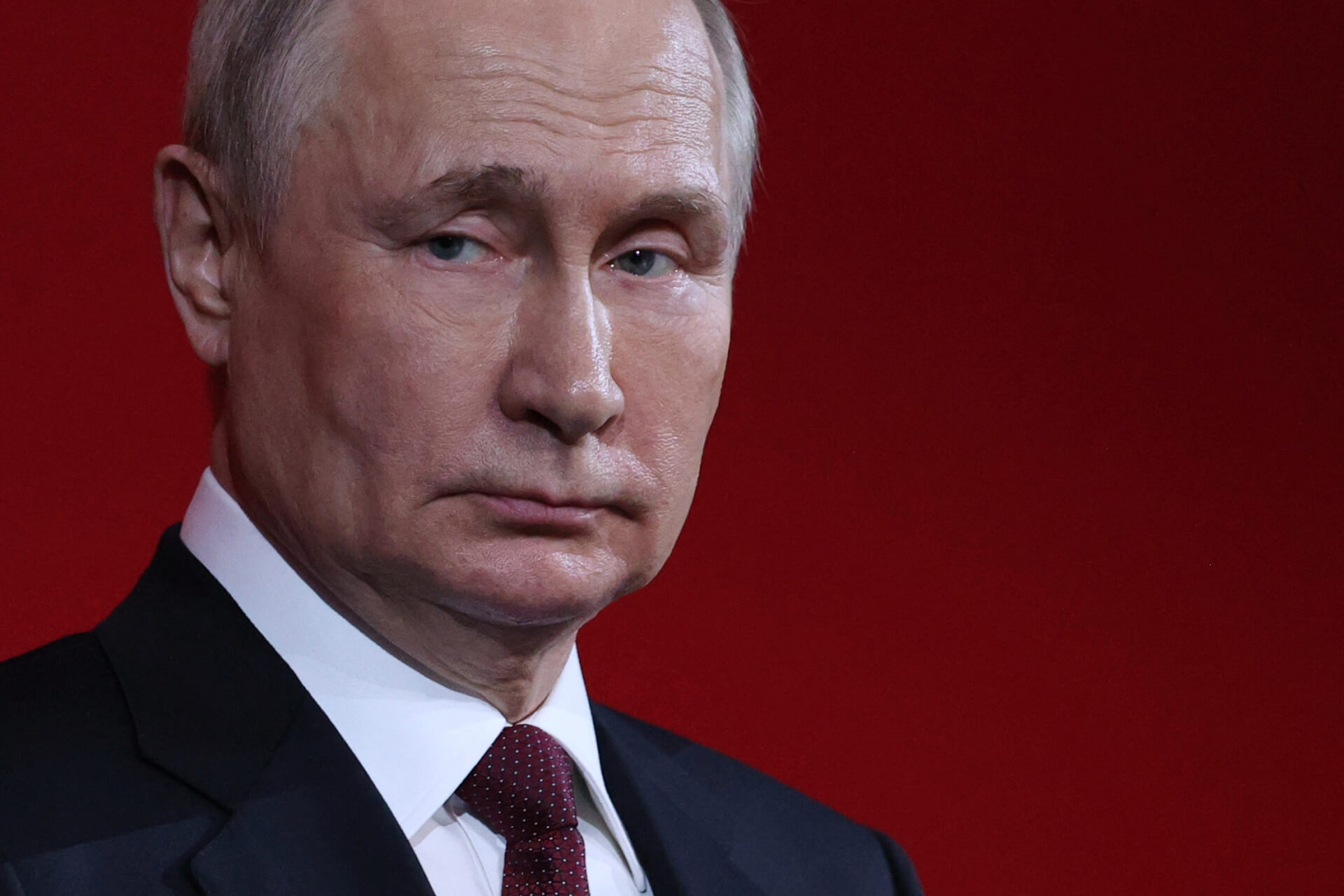In August, Wagner chief Yevgeny Prigozhin died in a plane crash, and since then, various reports surfaced online about the Kremlin’s alleged involvement in tragedy.
Reports have speculated that the mercenary leader’s death was linked to a failed mutiny attempt against Russian President Vladimir Putin two months prior.
There is no conclusive evidence of Kremlin involvement, but Prigozhin’s death adds to the list of dissenters, political opponents, and notable Russians targeted or killed in mysterious circumstances.
Reports indicate that several opponents, opposition leaders, and journalists who have criticised Putin or opposed the Kremlin during the last two decades have met a similar fate for opposing the Russian president’s 23-year rule.
Russian Government Silences Kremlin Critics, Opponents
Assassination attempts against President Putin’s opponents have been common under his rule. Those close to the victims and the few survivors have accused Russian officials of the same, but the Kremlin has repeatedly denied involvement — as it did recently in August, by saying it was “a complete lie” that it had anything to do with Prigozhin’s jet crash.
Here’s how the Russian government allegedly dealt with some of the Kremlin’s major critics:
Alexei Navalny
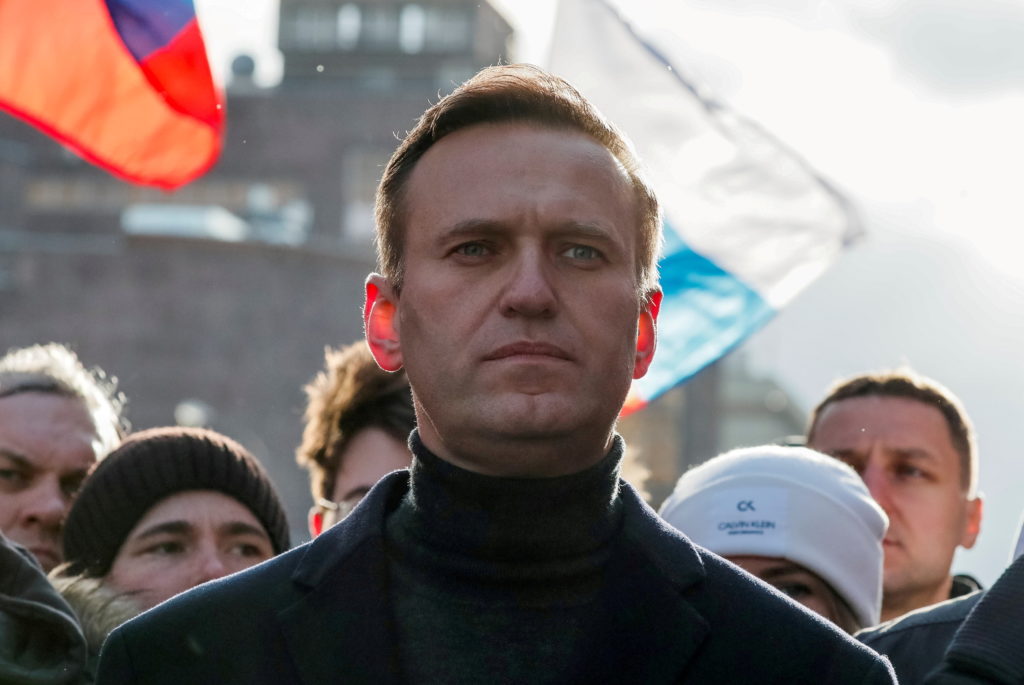
Alexei Navalny, an anti-corruption campaigner, has been the most prominent political of President Putin.
Kremlin critic Navalny, in his anti-corruption videos, argues that Putin’s party is full of “crooks and thieves.” He has accused the President of “sucking the blood out of Russia” through a “feudal state” that concentrates authority in the Kremlin.
He compares the patronage system to tsarist Russia. Navalny’s Anti-Corruption Foundation (FBK) has made detailed charges regarding government corruption.
Navalny, whose organisations have been labelled “extremist” in Russia, nearly died in August 2020 when he was poisoned with Soviet-era nerve agent Novichok in Siberia by Russian Federal Security Service (FSB) agents. But his team had him moved to Berlin, where he healed for months before returning to Moscow on 17 January 2021, where he was detained immediately.
In 2021, a Moscow court sentenced Navalny to prison for violating the conditions of a suspended sentence for fraud, which he was given in 2014. The case against him was based on his refusal to report to police regularly in 2020.
Navalny’s most recent punishment, meted out by judges in August 2023, was an extension his prison term to 19 years, including sending him to a maximum-security penal colony often designated for Russia’s most dangerous criminals.
Vladimir Kara-Murza
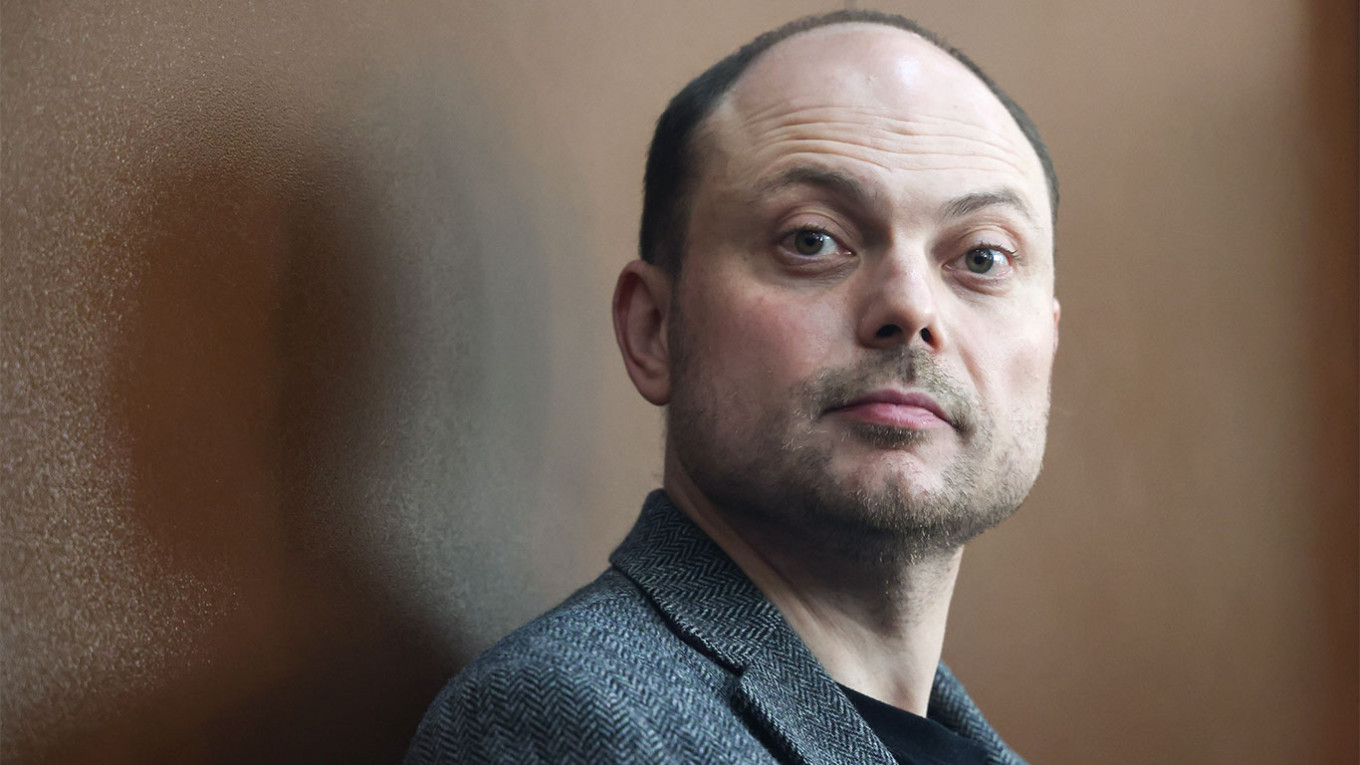
Kremlin critic Vladimir Kara-Murza had been speaking out against Putin for years, condemning human rights crimes in Ukraine since the war began. He also attacked the Russian government’s crackdown on the opposition and persuaded Western countries to criticise Russia for alleged human rights violations.
Kara-Murza has delivered several speeches in the US and Europe, accusing Russia of attacking people in Ukraine, which Moscow denies.
In August 2023, a Moscow court sentenced Kara-Murza to 25 years in jail for treason and “discrediting” Russia’s “special military operation” in Ukraine.
Kara-Murza was first arrested in April 2022, after denouncing Russia’s invasion of Ukraine but was later charged with treason. He appeared in court in August for his final conviction, which said that he would serve his sentence in a “strict regime correctional colony” and pay a $4,900 fine.
Boris Nemstov
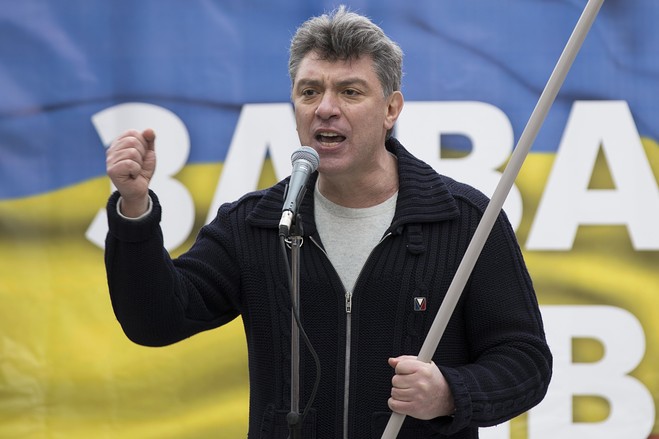
Boris Nemtsov was a vocal Kremlin critic who served as deputy prime minister under President Boris Yeltsin in the late 1990s. Nemstov was also a key official of the Republican Party of Russia/Party of People’s Freedom, a liberal opposition party, and he had been arrested several times for criticising Putin’s government.
According to reports, Nemtsov chose to re-enter politics when Russia’s political scene had been dominated by Putin’s official return to the presidency in May 2012. In February 2015, he was shot dead while walking with his girlfriend in central Moscow.
Just hours before his death, Nemtsov told Newsweek that Russia was “drowning” under Putin’s leadership and was quickly turning into a fascist state. “Due to Vladimir Putin’s policy, a country with unparalleled potential is sinking, an economy which accumulated untold currency reserves is collapsing,” he said.
Nemtsov died two days before he was scheduled to lead an opposition protest in Moscow. The assassination took place within sight of the Kremlin. Five Chechen men were sentenced to long prison terms in 2017 for his killing. Reports suggest Nemtsov’s followers believed Putin’s government was involved.
Sergei Skripal
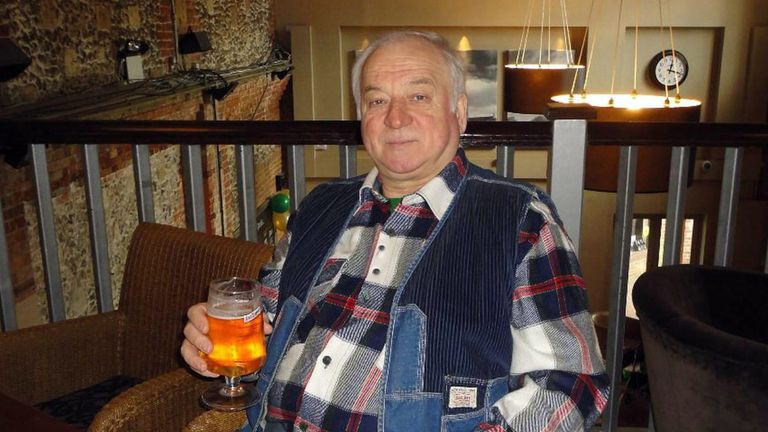
Sergei Skripal, a Russian intelligence officer who had become a double agent for the UK, was poisoned in the UK in 2018. He and his adult daughter Yulia were sick in Salisbury and hospitalised for many weeks. They survived, but the attack took the life of a British woman and critically injured a man and a police officer.
According to authorities, they were poisoned with the military-grade nerve agent Novichok. The UK blamed Russian intelligence, but Moscow denied any involvement. Putin called Skripal a “scumbag” who was of no interest to the Kremlin because he was tried and exchanged in a spy swap in 2010.
Anna Politkovskaya
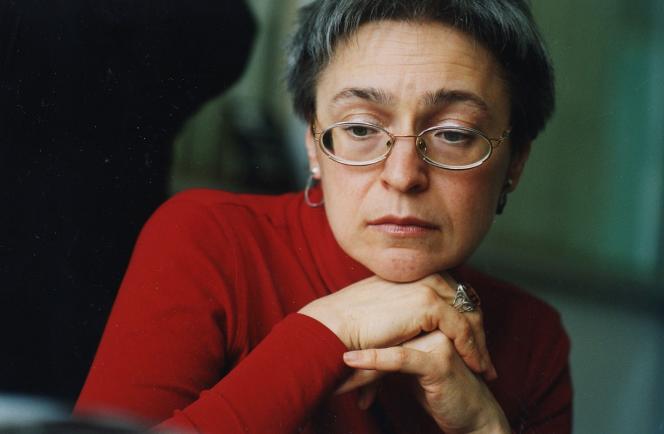
Anna Politkovskaya was a Russian journalist vocal in her criticism of Putin. In her book, “Putin’s Russia,” she accused Putin of turning Russia into a police state.
Reports suggest that Politkovskaya earned a reputation for her open coverage of human rights violations, most notably in the North Caucasus province of Chechnya, and outspoken criticism of Putin during a career that courted death threats and an alleged poisoning attempt.
In October 2006, she was shot and killed near the entrance of her Moscow flat. A Moscow court sentenced five men to jail for the killing in 2014.
Putin dismissed any Kremlin involvement in her death shortly after, stating that Politkovskaya’s “death in itself is more damaging to the current authorities both in Russia and the Chechen Republic... than her activities.”
Natalya Estemirova
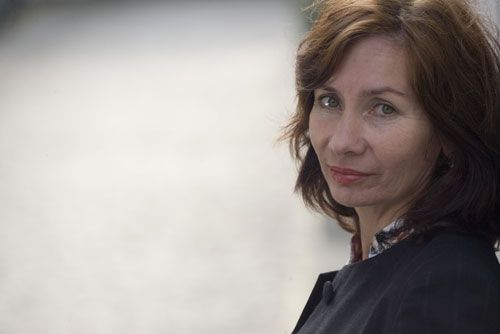
Natalya Estemirova was a historian and Russian human rights organisation Memorial’s board member. She documented victims of abductions, extrajudicial killings, and house burnings in Chechnya for years before her death.
During the second of the region’s two post-Soviet wars, which began in 1999, Russia’s campaign to contain an Islamist insurrection in Chechnya, targeting combatants’ families, became a characteristic Russian counterinsurgency technique.
Estemirova was a critical witness during the peak of this campaign in the 2000s, travelling to Chechen villages to collect and publicise stories of forced disappearances and other abuses.
Consequently, Estemirova accused Russian security forces and the well-known death squads of Chechen leader Ramzan Kadyrov, a Putin supporter, of kidnappings and breaches of human rights.
In July 2009, she was kidnapped off a sidewalk in Grozny, the Chechen capital, and her bullet-riddled body was later found in a field. The inquiry into the murder was futile.
Wagner Chief’s Death, Russia’s Response
In late June, Wagner leader Prigozhin took control of Russia’s southern city of Rostov-on-Don, the initial clash in a mutiny against the Kremlin, which concluded in peace mediated by Belarusian President Alexander Lukashenko.
Two months later, on 23 August, a private Embraer aircraft flying from Moscow to St. Petersburg crashed north of the capital, killing Prigozhin and nine people on board, including Dmitry Utkin and Valery Chekalov, four bodyguards, and a crew of three.
The mercenary chief’s reported death, two months to the day after his brief rebellion against Russia’s senior military brass, sparked widespread suspicion, with some Wagner Group supporters claiming that the jet was shot out of the sky by a Russian air defence missile.
Other reports claimed that a bomb was reportedly placed within a bottle of expensive wine given to Prigozhin and carried onboard the aircraft moments before departure might also be the reason for the crash.
The Kremlin has dismissed as an “absolute lie” the notion by certain Western politicians and commentators, who did not provide evidence, that Putin ordered Prigozhin’s death in revenge.
Conclusion
Reports show that years of repression in Russia had succeeded because nearly all of the Kremlin’s opponents were imprisoned or in exile, and liberal media outlets and human rights organisations were forced to close.
Since mid-March, Russia’s parliament has also extended censorship laws on what citizens may say about its military services and increased the treason penalty to life imprisonment rather than 20 years.

